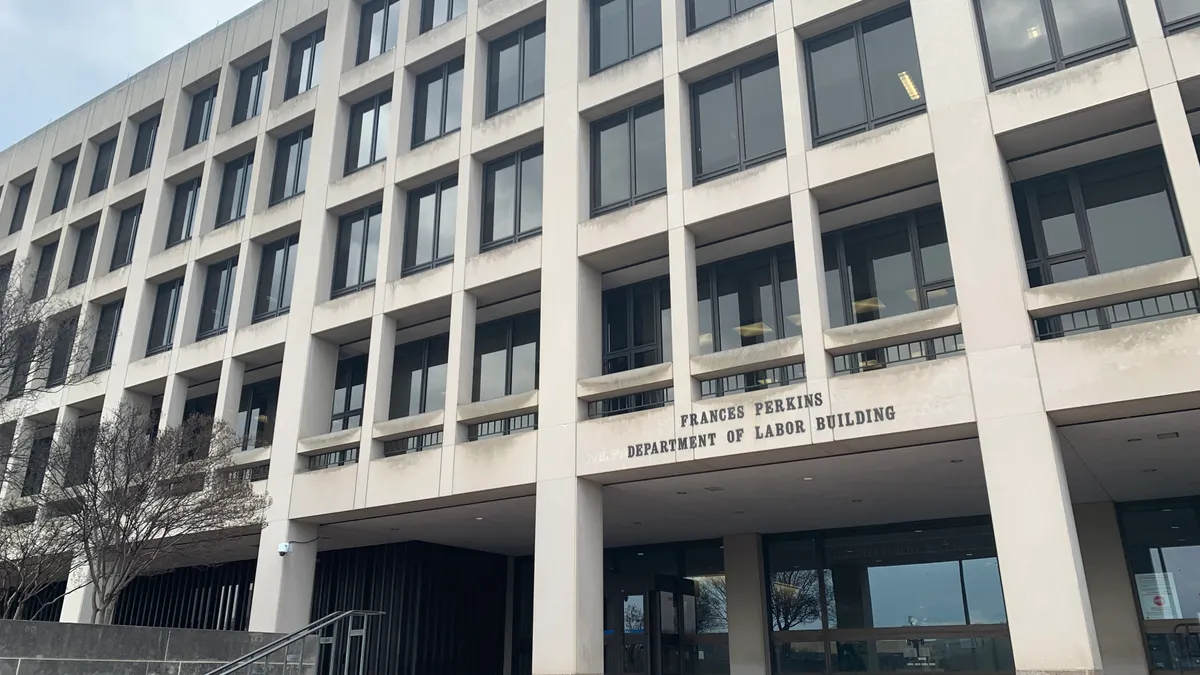Dive Brief:
- The U.S. Department of Labor will propose an increase of the minimum salary threshold for overtime eligibility under the Fair Labor Standards Act to $1,059 per week, or $55,068 per year, the agency announced Wednesday.
- In a press email, DOL said the updated regulations would expand overtime eligibility to some 3.6 million workers. The proposed threshold would mark an increase from the current level of $35,568 per year — set by the Trump administration in 2019 — and even surpasses the $47,476 threshold that the Obama administration attempted to set in 2016.
- DOL's proposal also would increase the total annual compensation requirement for highly compensated employees to $143,988 per year. The proposal outlines an automatic update provision for future overtime thresholds beyond what is included in the proposed rule and would not make changes to the FLSA's "duties test" for determining overtime eligibility. Once published in the Federal Register, the proposal will be subject to a 60-day public comment period.
Dive Insight:
DOL’s announcement has been months in the making. During a June 2021 congressional hearing, former Secretary of Labor Marty Walsh told lawmakers the department was reviewing its overtime regulations, and the agency later confirmed a review shortly afterward. The agency encountered a series of delays before settling on August as the deadline for a proposed rule back in June.
The proposed rule specifically deals with Section 13(a)(1) of the FLSA, which exempts from both minimum wage and overtime pay workers employed as bona fide executive, administrative, professional and outside sales employees, as well as some computer employees.
Job titles alone do not determine an employee’s exempt status, and employers may use nondiscretionary bonuses and incentive payments paid on an annual or more frequent basis, including commissions, to satisfy up to 10% of an employee’s standard salary level for purposes of the rule.
Wednesday’s proposal includes an automatic update provision that would change both the standard salary threshold and the highly compensated employee threshold every three years using “current wage data.”
DOL would publish a notice in the Federal Register no fewer than 150 days prior to each automatic update stating the updated amounts required under the regulations. The proposal provides that such updates may be delayed from taking effect for a 120-day period if the notice of proposed rulemaking is published no fewer than 150 days before an update is set to take effect.
If past efforts are any indication, the rule would likely see challenges in court. That thinking is based partly on past precedent: A federal judge enjoined the Obama administration’s 2016 threshold following challenges from multiple states and employer groups.













